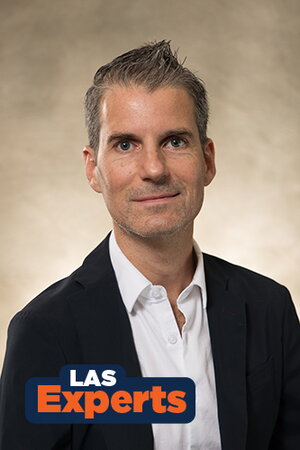There are things we’ve trained to do, and then there are the things we change for. John Levi Barnard, professor of English and comparative and world literature, and an affiliate faculty member with the Institute for Sustainability, Energy, and Environment and the Unit for Criticism and Interpretive Theory, describes how his scholarship and teaching is adding perspective to current crises. He recently was awarded the Humanities Research Institute Research Prize for Faculty for his essay “Colonization to Climate Change: American Literature and a Planet on Fire.”
What is your area of expertise?
By training, I’m a scholar of 19th century American literature and culture, but my recent work has been mostly in the field of environmental humanities.
What are you currently working on? Why are you passionate about it?
The title of my essay kind of sums it up. We’re living on a planet that is increasingly literally on fire. Heat waves, wildfires, all kinds of extreme weather killing people and destroying everything. My work focuses on the interrelated questions of how we got into this mess and why it seems so hard to get out of it. I just wrote an essay about this for a cluster on “Stuckness” for the Post-45 “Contemporaries” series, where I argue that we’re “stuck in the future of the past,” by which I mean the future as it was imagined in 1945, which was at once the dawn of the nuclear age and the beginning of what we call the “great acceleration” of the modern, petroleum-fueled, and globalized industrial economy. That future has materialized through infrastructures—roads and highways, global shipping and supply chains, and commercial aviation on the one hand; the nuclear-military industrial complex on the other—that are so entrenched we struggle to imagine life without them, even as they threaten all of our lives with climate change and nuclear annihilation.
But if we’re stuck in a particular vision of the future hatched at the moment of American triumphalism at the end of WWII, the roots of our problems are actually much further back. My current book project, “The Edible and the Endangered: Food, Empire, Extinction,” looks specifically at animal agriculture and animal food systems as central components of colonial-capitalist development over the past 400 years or so. While environmental humanities scholars have tended to focus on fossil fuels as the underpinning of industrialization and thus the primary cause of climate change, the global animal economy is similar in both its ecological impacts and its cultural significance. I write about the historical emergence of that economy—from colonial New England’s fisheries and the slaughterhouses of Chicago to the proliferation of McDonald’s restaurants all over the world—highlighting its importance to American culture and its ramifications for the climate and the web of life.
What do you enjoy most about teaching?
I’ve noticed that students are more open to big ideas than ever before—to systemic, structural critique of the world as it is, and to radical alternatives. But they are at the same time extremely skeptical about the possibility of change, about the reality of agency. This reflects what I think is sort of a prevailing structure of feeling of our age, in the face of climate change, which registers the tension between the absolutely necessary and the totally impossible. I’ve taken to saying to students that our classroom is a place for entertaining crazy ideas—and by “crazy” I mean those ideas that are pretty obviously good ones, and maybe even necessary ones, but that everyone tells us are impossible, or a waste of time. What I love most about teaching are the moments when students let go of their skepticism and despair and really embrace these kinds of ideas. This past semester, in my American Romanticism class, the students really responded in this way to a lot of what we read, most notably Black abolitionists like Henry Highland Garnet, Frederick Douglass, and Harriet Jacobs, and mid-19th-century anti-capitalist thinkers like Melville and Thoreau. They were surprised and moved by how much these voices from the past spoke so directly to their concerns—social, economic, educational, ecological—here in the present.
What are you proud of?
Moments where students really connect with some idea or creative work in a way that makes it alive and useful to them in their lives and in the world—those are the most meaningful to me. I had one student, back at my previous job, who took my class on “American Literature in the Time of Extinction,” and later asked me to be a co-advisor on her senior thesis, which was a multimedia art project on food and extinction. It included an amazing sculpture—a whole flock of passenger pigeons (a species that went extinct in 1914) hand carved from recovered wood and held together and suspended from the ceiling by some kind of wire. The student gave me one of the birds as a thank you gift, and I keep it on the mantelpiece in my house so I can see it every day. There’s (also) that “American Romanticism” class I just mentioned, which was the first class where I actually successfully taught Thoreau (and I have taught Thoreau many times!)—where students could see him as a radical voice who speaks urgently to the crises of our moment, rather than just an annoying hypocrite whose mother did his laundry.
Dave Evensen
Editor's note: This story first appeared on the College of LAS website as part of the LAS Experts series.
